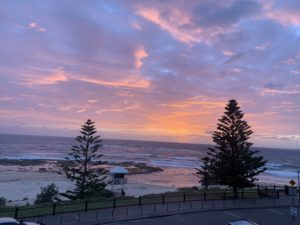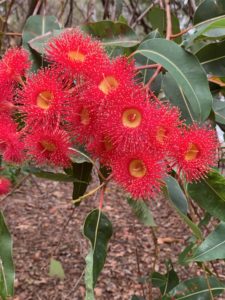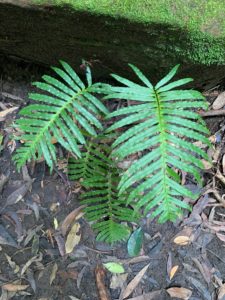


“We can create a fearless life
by living daily out of our comfort zone,
and in the deliciousness of uncertainty”
Finding Zen and the Opportunity of This Time
The truth is, all of this has always been here. We’ve always been distracted, numbing our difficult emotions like loneliness and sadness and anger with social media, food, alcohol and other comforts. We’ve always felt uncertainty, anxiety, frustration and overwhelm.
It’s just that this pandemic has brought it all front and center. Put it directly in our faces, so we can’t ignore it.
That’s difficult, but it’s also an opportunity — to look directly at the things we don’t want to admit to ourselves.
To become present to our emotions.
To train ourselves in compassion, gratitude, wonder, connection, meaning and mindfulness.
It’s terrible that people are get sick and die,— we don’t want to pretend that everything is rainbows and unicorns. It’s terrible and easy to turn to alcohol are other unhealthy ways of coping with all of this.
But we need to make the most of this time, use the opportunity of this time.

We start first by recognizing whatever is there for us: overwhelm, distraction, loneliness, sadness, frustration, disconnect, anxiety.
We get present with it: how does it feel in our body? Can we be with the sensations of these emotions, mindfully, gently, with openness and curiosity?
We bring compassion to ourselves — a sense of warmth and wanting happiness for ourselves.
We then try a new frame of mind — here are a handful to try out:
- Curiosity: can we be curious about something in this moment, from the sensations of our emotions to what another person is going through? What changes for you when you practice curiosity?
- Wonder: Can we view this moment (ourselves, our surroundings, other people) with a sense of awe and appreciation? With a sense of wonder at the miracle of life? How does that change things for you?
- Gratitude: Can we feel a sense of gratitude for what we have in this moment, for the other person, for our eyesight? What would it be like to lose those things? Can we see the things we have through this new lense of appreciation?
- Meaning: What if everything we did had a sense of meaning — what if every act could be a way to love ourselves, or to love and serve others? How would that change each act for you?
- Mindfulness: Can we simply be present in this moment? Connect with a sense of spaciousness and awareness of what is happening right now? What shifts for you when you do this?
- Connection: Can we feel a sense of connection to others in each moment? To the light in ourselves? To the world around us? And realize how we’re supported by the entire world.
- Empowerment: There’s a big difference between doing something because we feel we should, or because we have to … and doing something because we choose to. Can you choose into each act in your day? Or choose out of it, if you really don’t want to do it? What would life be like if you were choosing to do things from an empowered place, rather than feeling like life was happening to you?
Choose one at a time, and practice it for a few days. Life in the pandemic will give you plenty of practice opportunities, if you look for them. Embrace them, and train.
gratefully,
Leo Babauta
Zen Habits Thanks to Zen Habits
“We can create a fearless life by living daily out of our comfort zone, and in the deliciousness of uncertainty”
















































